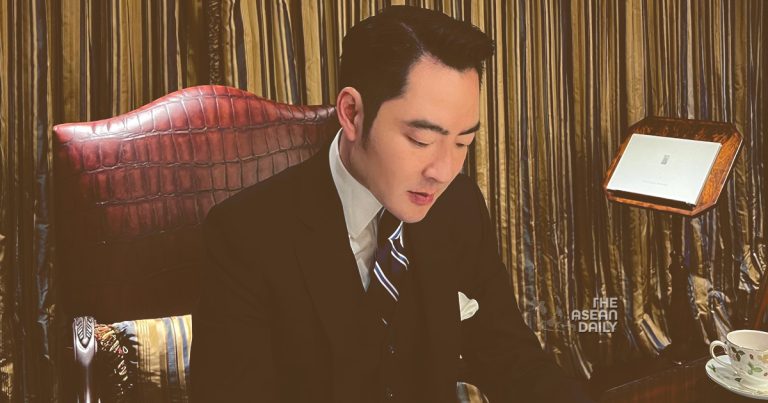28-7-2023 (HONG KONG) Hong Kong saw an unusual meeting between Calvin Lo, CEO of R.E. Lee International, and an editor from Forbes magazine. Within the lavish confines of the company’s office, complete with ornate wood panels and leather-bound books, Lo made his pitch: he was considering providing documentation to get himself included on the iconic Forbes Billionaires List.
By this point, Lo had spent over two years aggressively promoting himself as a billionaire, desperate to secure a spot among the world’s richest. Since 2020, at least seven people reached out to Forbes on over 20 occasions, selling Lo as the “most under-the-radar billionaire philanthropist” and “most private billionaire investor”. They sent financial documents supposedly confirming his vast wealth.
Initially, Forbes was sceptical. R.E. Lee International was little-known in Hong Kong, where Forbes maintains an office, and the idea of billions made in reselling insurance seemed far-fetched. But the lobbying persisted. Soon, outlets including the BBC, CNBC and the Financial Times ran stories calling Lo a billionaire, frequently citing Forbes as the source.
Yet Lo has never appeared on the list. After a year-long investigation across six countries and hundreds of documents, Forbes can now confirm that Lo’s “dilemma” was a ruse. His proclaimed billions are a mirage.
Lo claimed to be CEO and owner of R.E. Lee International, the “world’s largest life insurance broker”, and founder of R.E. Lee Capital, an asset manager with up to $10 billion under management. He boasted a $1.2 billion purchase of the Mandarin Oriental hotel in Taipei, along with a $250 million foundation and luxury homes worldwide. He was supposedly an investor in the Williams Formula 1 team and owned a quarter-billion-dollar champagne collection.
In truth, most claims could not be verified. Others were outright fabrications. He holds no F1 stake. He didn’t buy the Taipei hotel. His “homes” belong to parents or strangers. Harvard has no record of his purported MBA. His foundation and holding company appear non-existent. R.E. Lee Capital clarified he is not involved in management. His insurance firm likely brokered under $1 billion in policies last year and is worth around $60 million. Forbes values Lo and his parents’ combined net worth at under $200 million.
Lo went to extraordinary lengths to perpetrate his billionaire persona, including seemingly forging documents and manipulating photographs. But why? A hint came from Lo himself, who stated billionaire status would aid his core business of selling insurance to the ultra-wealthy. “If I was looking for these services, I would want that person to be successful,” he reasoned.
The roots of Lo’s duplicity stretch back to Seattle, where R.E. Lee International was founded by Robert Earl Lee. He later hired Regina Lee (no relation), Lo’s mother, to expand into Asia. Regina became instrumental in the firm’s regional growth.
Lo was born in Vancouver but initially raised in Hong Kong before returning to Canada for university. In 1999, he joined his mother at R.E. Lee in Hong Kong, becoming CEO in 2003. At some point, Regina began bankrolling her son’s extravagant way of life. This was exposed during Lo’s acrimonious 2014 divorce, which unveiled over a million dollars in unexplained income used for sports cars,decorator and designer clothing.
The proceedings also attacked Lo’s credibility, with accusations of resume embellishment. While some claims were unproven, inconsistencies remain. Lo’s birth year varies across documents as 1971, 1977 and 1978. Forbes confirmed his Queen’s University degree but found no evidence for Harvard. Two former associates allege diploma forgery.
In 2015, Regina bought R.E. Lee outright and moved headquarters to Hong Kong. She may have given Lo the firm. But most other assets are untrue. Contrary to his claims, Lo never purchased the Mandarin Oriental in Taipei. The F1 team have never heard of him. None of his declared homes are actually his.

Lo hired Thai law firms to validate his fortune, but they relied solely on his provided documents. Two firms permitted partial viewing of financial statements allegedly evidencing billions in wealth and charity donations. But the auditor listed denies any knowledge of Lo, while registration numbers lead to unrelated entities.
Even Lo’s champagne and supercars seem suspect. Christie’s called his proclaimed $250 million wine collection infeasible. A photographed Pagani Huayra likely had Lo photoshopped in.
In April, after omitting Lo from the latest Billionaires List, Forbes received an email from his advisor. It accused Forbes of doubting “Mr. Lo’s financial achievements”, claimed our queries about the photographed car were pointless, and threatened to bring up issues around Forbes’ “frivolous” reporting during an imaginary dinner with company ownership.
Yet just weeks later, Lo’s publicists again pitched interviews to Forbes, offering stories on his F1 venture and insurance expansions. After Forbes detailed findings showing Lo is no billionaire, he professed disinterest in future coverage.
But the reality is now clear. Through persistent embellishment, document manipulation and repeated threats, Calvin Lo strove fruitlessly to land on the prestigious Forbes Billionaires List. In truth, he is merely a moderately wealthy scion who spun fictions in the hopes of boosting his reputation and business. Forbes can confirm Lo is no billionaire. His bid for recognition was little more than an elaborate bluff.




